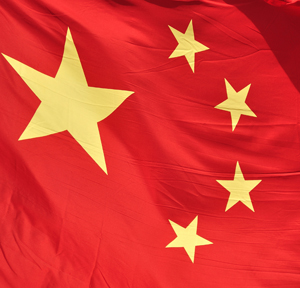Surveys
Investment Returns, Trust Remains Key; Luxury Lifestyle Got A Bit Cheaper In 2014 - Julius Baer/BoC Report

A joint report on wealth trends in Asia by Bank of China and Julius Baer shows that returns and trust remain vital for clients while the average cost of luxury living has actually declined.
Chinese high net worth investors are broadly positive on risk
assets, but still have a desire to hold safe-havens such as gold
and regard investment performance and trust as among the main
markers for choosing a bank, according to a joint report by
Bank of
China and Julius
Baer.
The 71-page report examines what clients want from a private
bank, while it also gives an update on price trends for luxury
goods and services across Asia, showing education remains a big
cost issue. Julius Baer launched its lifestyle index in 2011 to
follow living costs for millionaires in 11 Asian cities.
Separately, the Zurich-listed firm has worked with BoC to launch
an index that covers 12 cities on the Chinese mainland for the
first time.
The collaboration on the report is notable and shows how the
Swiss private bank has said it wants to make Asia its second
“domestic market”.
“Our strategic partnership with Bank of China comes as the
economies in the region are becoming increasingly synchronised
and financially integrated. It is clear to us that the
combination of these factors, together with the
internationalisation of the renminbi, [shows]Asia’s growth
drivers are evolving rapidly,” Boris Collardi, Julius Baer’s
chief executive, said in the report.
This study sampled some of Bank of China’s onshore private
banking clients. In June 2014, Bank of China interviewed 200
private banking clients in face-to-face meetings. The average age
of respondents is 45 and there is an even split between men and
women. Sixty per cent of the respondents have been clients of
Bank of China Private Banking for over two years.
What clients want
Structured products with capital protection remain the preferred
investment vehicle, but foreign exchange-linked products, bonds
and overseas equities were listed as being of interest over the
coming 12 months, the report found. In terms of cross-border
investing, the top two interests over the next 12 months are to
invest overseas financially (44 per cent) and buy properties (40
per cent). In terms of investment destination, the US and Canada
(61 per cent) took the top spot, followed by Hong Kong (34 per
cent), Australia (21 per cent), continental Europe (15 per cent)
and the UK (11 per cent) tying with Singapore (11 per cent) in
fifth place.
The preferred long-term investment is property (53 per cent). As
for gold – traditionally a popular asset in Asia - respondents
see the longer term value of holding gold (35 per cent) in their
portfolios, but have limited return expectations in the shorter
term. Equities (14 per cent) ranked last as a ‘long-term
investment’.
Index
The expanded pan-Asia Julius Baer Lifestyle Index rose 1.1 per
cent in local currency terms in 2014, but declined by 5.3 per
cent when moves against the dollar are factored in.
One possibly surprising take-home point from the report is that
in dollar terms, living a life of luxury in Asia in four of the
original cities that Julius Baer tracked in its index (created in
2011) – Hong Kong, Singapore, Mumbai and Shanghai – has become
cheaper. Standard inflation averaged 4.5 per cent in the four
cities, and has fallen 6.9 per cent in dollar terms over the
latest 12 months.
There are some eye-catching mixtures of price trends. On average,
across Asia in local currency terms, the highest increases are
university tuition (30 per cent), ladies’ shoes (8 per cent) and
hospital stays (4.9 per cent). The largest declines were recorded
in business class air travel (-20 per cent), jewellery (-13 per
cent) and golf club memberships (-11 per cent).
As far as the new Julius Baer – Bank of China Lifestyle Index is
concerned, the 12 cities in the index come from four regions.
Bohai Economic Rim (Beijing, Tianjin, Dalian), Yangtze River
Delta Zone (Nanjing, Shanghai, Wuxi), Pearl River Delta Zone
(Guangzhou, Jiangmen, Huizhou) and the Western China Emerging
Zone (Chongqing, Chengdu, Xian). Items covered are business
registration fees, dental implants, first class domestic air
travel, golf club memberships, hospital, hotel suites, luxury
property and wedding banquets.
The highest average costs are found in the Bohai Economic Rim,
with a significant gap between Beijing and the other two member
cities (Tainjin and Dalian). The lowest costs can be found in the
Western China Emerging Zone – as well as the gaps between the
three cities (Chongqing, Chengdu and Xian) are the smallest.
Expensive learning
Within the Julius Baer Lifestyle Index, the education-related
components (university tuition and boarding school fees) have
shown the most consistent increases, double-digit increases since
2011. Julius Baer commissioned a survey of more than affluent 800
parents across Beijing, Shanghai, Hong Kong, Mumbai and
Singapore, to ascertain their attitudes, preferences and
expectations in terms of investing for their children’s
futures.
Parents in Beijing and Shanghai (98 per cent) have the highest
expectations that their children will achieve advanced degrees
(Bachelor degree or above).
Singapore (64 per cent) stands out for the strongest preference
for local universities. Parents in China (66 per cent) have the
clearest preference for overseas education, in particular the US
and UK. This echoed the results of the Bank of China private
banking survey in terms of desired overseas investment
destinations.
Parents in Mumbai (91 per cent), Beijing and Shanghai (88 per
cent) have the strongest expectation that their children will
enjoy higher incomes than themselves.